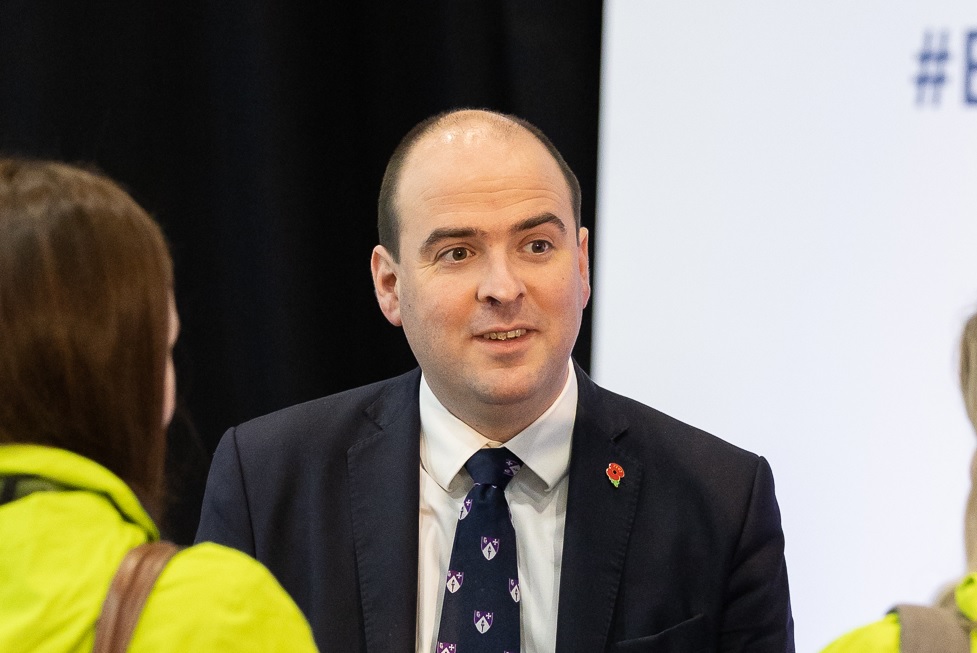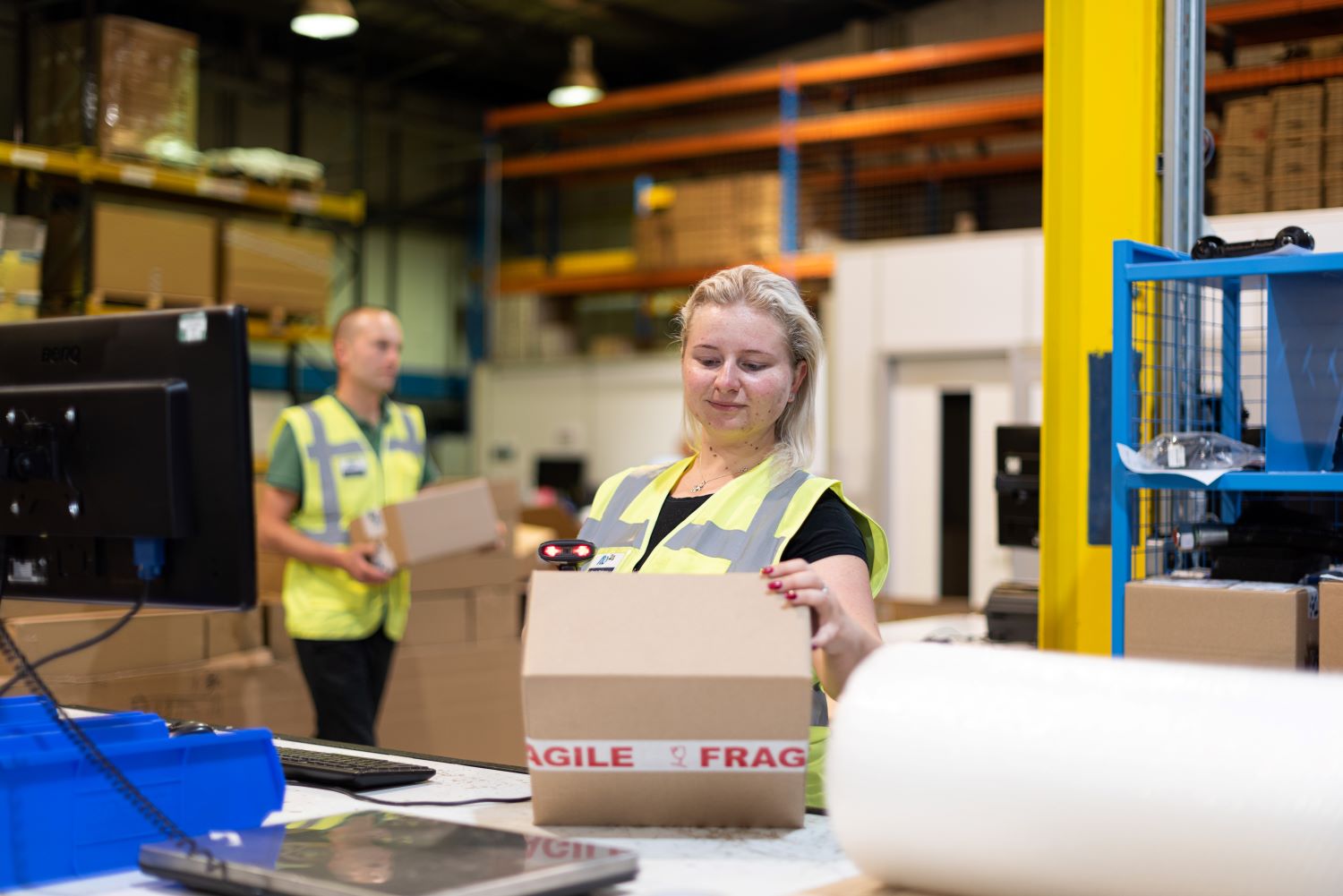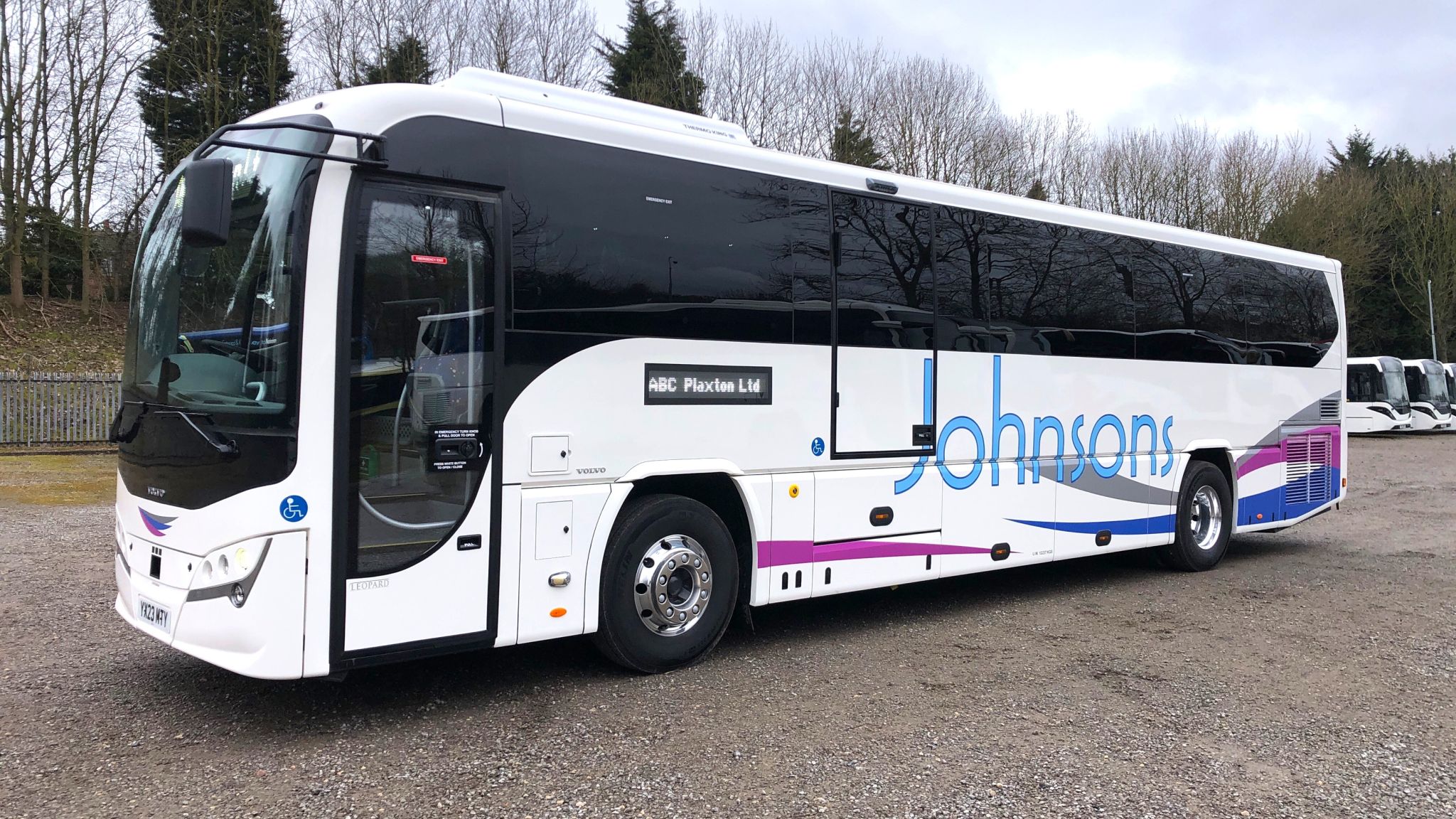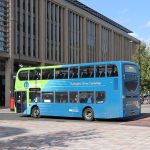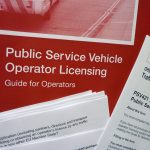Hopes that the bus industry in England will benefit from a longer-term government funding package have risen after Under-Secretary of State for Transport Richard Holden (pictured) said that the Department for Transport (DfT) is working with various parties – notably, including the Treasury – to develop a plan “to help the sector to a sustainable footing.”
Mr Holden was speaking at the Confederation of Passenger Transport UK Bus and Coach Conference on 30 March. He says that DfT hopes to have more details to share “soon” on any funding beyond the planned end of Bus Recovery Grant and Bus Fare Cap Grant (BFCG) on 30 June.
However, the minister stressed to bus operators that for the best possible outcome to be secured, they must make the effort to get their MPs aligned with the industry. “Reach out to them,” he says. “They are your best advocate. Get them lobbying on your side.”
Mr Holden’s words came at around the same time that fellow DfT minister Baroness Vere told the House of Lords that the Department is currently creating “an analysis of what we may be able to do to support the bus sector after 30 June.” A mounting groundswell of stakeholders have called for longer-term funding in England to avoid major, and politically damaging, cuts to bus services.
Despite a hint that further money for buses may follow, it will not be via another extension to BFCG. The £2 fare capping exercise “is going to be a six-month scheme,” Mr Holden adds.
Acknowledging that concessionary travel patterns remain “a big problem” for the industry, he says that the government plans to look at the English National Concessionary Travel Scheme, although what that work will entail is unknown. Consultation on BSOG reform is also in the works, although it will occur “over time.”
Mr Holden adds that an announcement on further funding for zero-emission buses is due “quite soon,” noting that he is confident the 4,000 target by the end of this parliament – set by former Prime Minister Boris Johnson when launching the National Bus Strategy in 2021 – will be met. Some commentators have suggested that the milestone will be missed by a significant margin.
However, the minister says that key to widespread deployment of zero-emission buses is making their purchase viable on an entirely commercial basis.
Pointing to recent news that National Express West Midlands has ordered 300 battery-electrics with no third-party support, Mr Holden adds that “we are seeing that now.” As further weight for such buses’ commercial purchase, he notes that they are cheaper to run than diesels, and that their deployment in one area has led to a 4% increase in patronage.




















